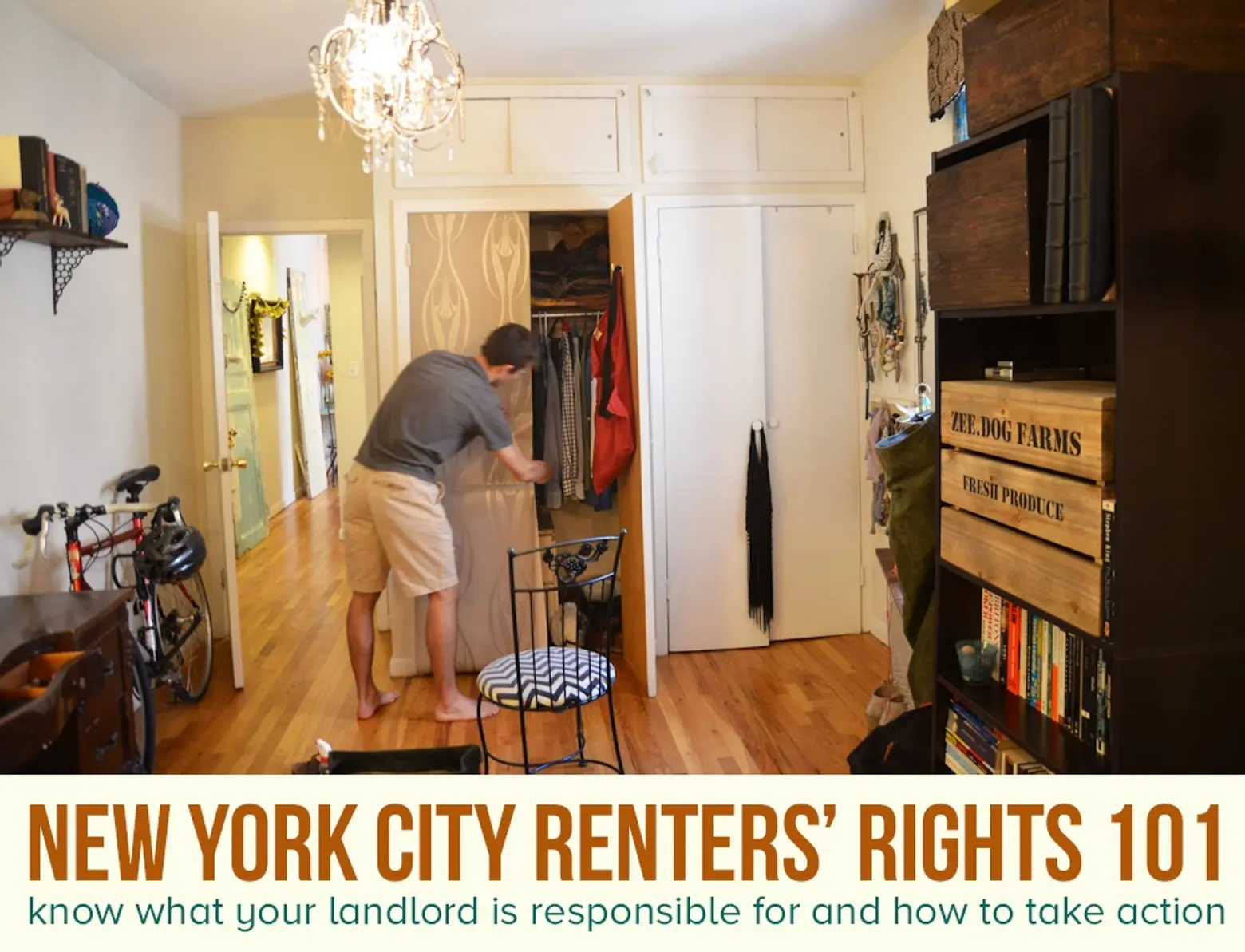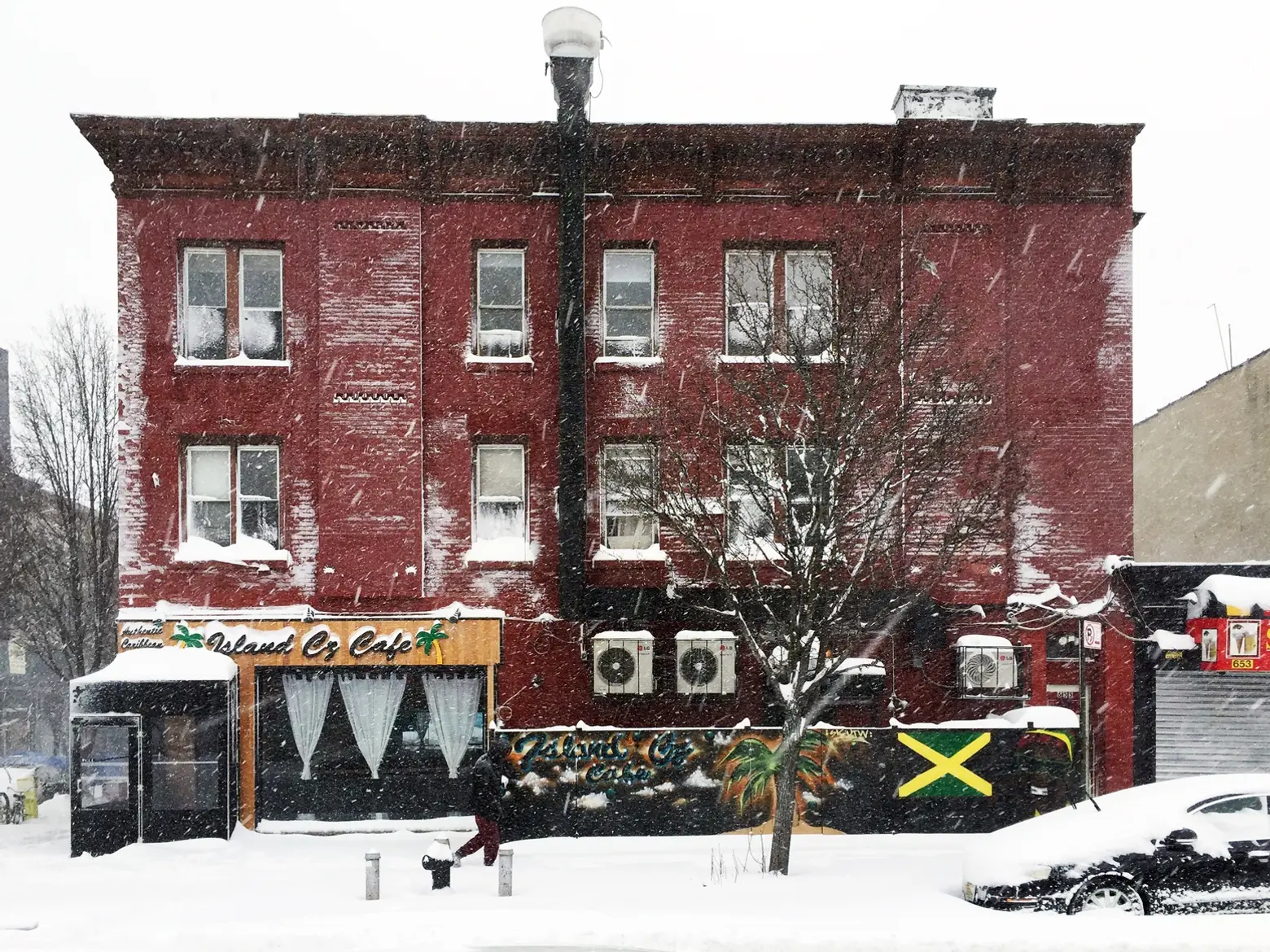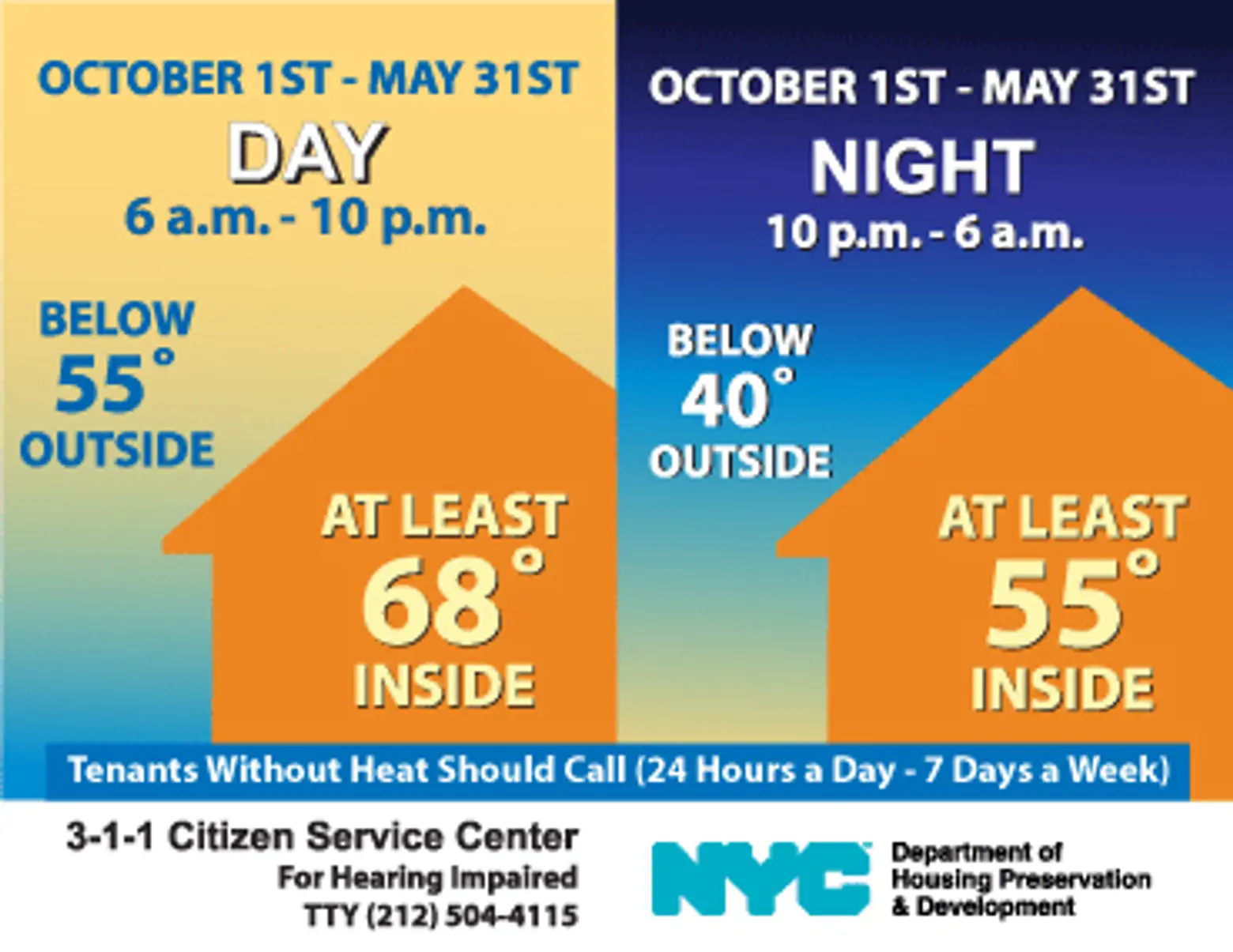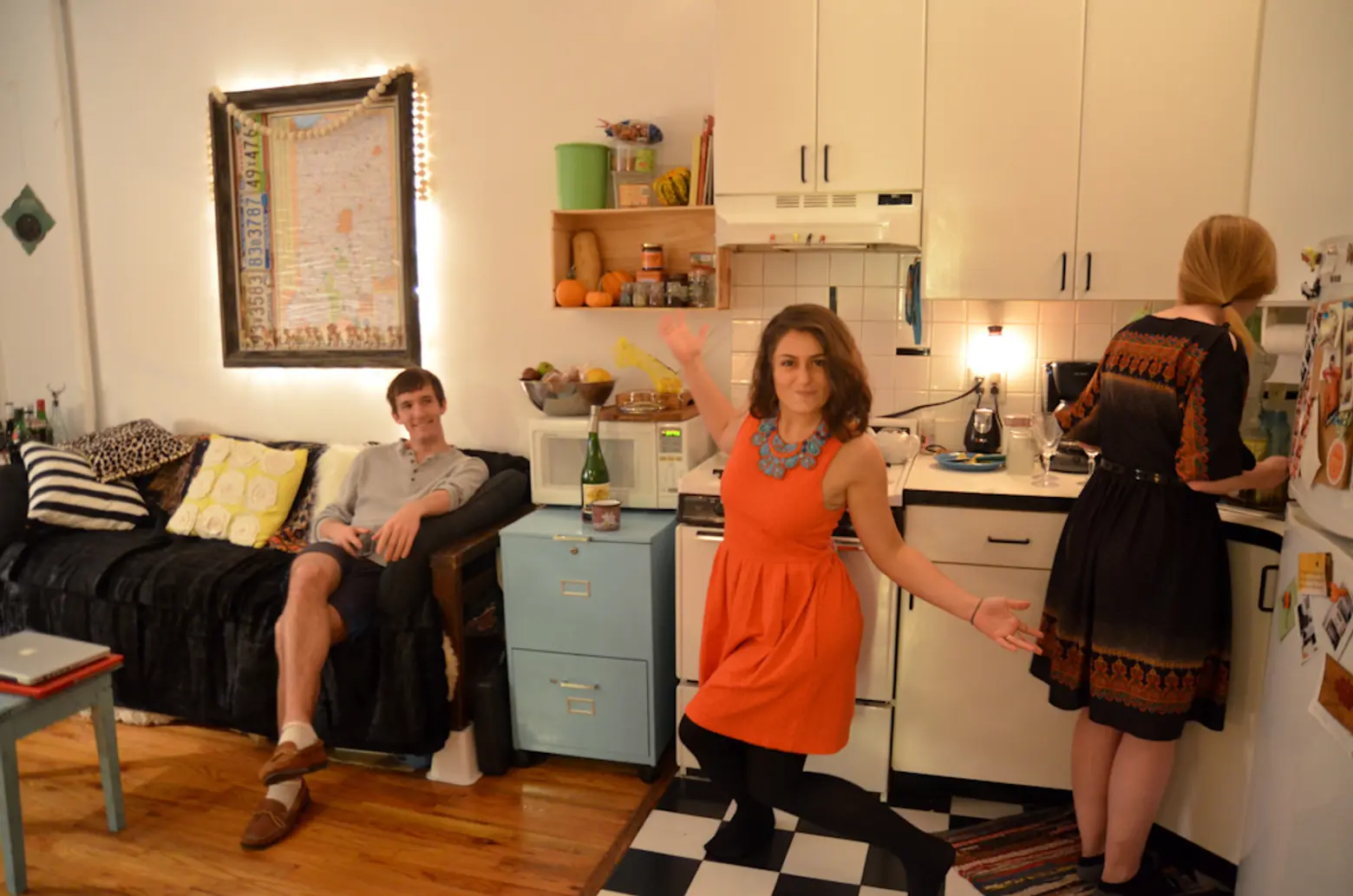Renters’ Rights 101: Know what your landlord is responsible for

No, you don’t have to suffer in a sub-zero apartment this winter, nor do you need to dine with mice and roaches in your kitchen during the summer. If you’re one of the many constantly finding themselves up in arms over a negligent landlord, rest assured there’s more that you can do beyond grumbling to your friends. Indeed, in NYC tenants have a lot of power, and the city has established a number of regulations to protect you, your family, and especially young children living in rental properties. Ahead is 6sqft’s list of the most common problems New York renters face—and some advice on how to get those issues fixed quickly.

Heating
Adequate heating during the winter is one of the most common problems that renters encounter. But did you know that your landlord is required to heat your building to at least 68 degrees during the daytime in the winter, and at least 55 degrees at night?

NYC has designated a “heat season” that runs from October 1 to May 31, requiring that these standards be met, and building owners that fail to follow these guidelines are subject to heavy penalties. If you know that your landlord is intentionally turning down the thermostat, or if your landlord is failing to address heating issues in a timely manner, you should call 311 or file a complaint online at 311ONLINE. As we said, your landlord will face daily fines until the issue is fixed. You can also request that your landlord show you bills from the last two years to prove “Truth in Heating” to help build your case.
If you have the opposite problem (i.e. an overheated apartment), still contact your landlord—he/she may not even know that it’s too hot. Moreover, just oftentimes shutting off your radiator valves will help. If your unclear on how to do this, ask your superintendent for assistance.
Construction
Are you being tormented by unrelenting construction on a daily basis? If you feel that the owner of your building is working in excess of what seems reasonable, you can call the Department of Buildings to confirm that a permit was issued as well as what work hours were designated for construction. If it is apparent that rules are being broken, you can present a case to the Buildings Department and the agency will send a representative out to investigate the situation. On the similar note, if you feel that construction is causing hazardous conditions in your building, you should contact the Buildings Department immediately.
Those who have suffered under prolonged and disruptive construction bouts can also file an Application for a Rent Reduction Based Upon Decreased Building-Wide Services with the NYS Division of Housing & Community Renewal, the state agency which administers the rent laws. Extended periods where noise and dirt are present in buildings constitutes a landlord’s failure to provide adequate services, and renters are entitled to reparations in these cases.
Building and Apartment Security
Your landlord is required to provide locks on not only your individual door but the front door of your building. If you live in a property with multiple dwellings, you are permitted to install and maintain your own apartment locks in addition to the the ones provided by your building. But if your landlord requests a key copy for your new lock, you’re obligated to supply it. Your landlord, however, is not allowed to enter your apartment without your permission. The exception would be if there was a severe emergency and waiting for you could cause damage in the building or endanger others.
And do you have a peephole on your entrance door? Your landlord is required to equip it with one.

Bed Bugs and Other Vermin
The city’s bed bug epidemic is largely under control, but there still a number of buildings afflicted with them. Likewise, mice continue to pose a problem for numerous people, including those in the nicest of buildings. If you’re one of these folks with a few too many guests in your home, know that by law, your landlord must keep your apartment unit and building in a safe and sanitary condition that is free of rodents and pests. When theses critters are found on the premises, your landlord needs to apply “continuous eradication measures.” This equates to traps, poisons, fumigation, or any other method of extermination.
A handy tool for prospective renters and buyers released by the Department of Health this past year is the Rat Information Portal. This easy to use, interactive map reveals which addresses have reported “active rat signs” recently, and how management is dealing with compliance, clean-up, and baitings to pass inspection.
Protection Against Lead Paint
To protect children (who are especially susceptible to lead poisoning), in 2004 the city implemented a Lead Paint Hazard Reduction Law that requires landlords to identify and remediate any lead-based paint issue found in their building. Quite startlingly, the city says that you should presume your living situation poses a lead-based paint hazard if:
- The building you live in was built before 1960 (or between 1960 and 1978 if the owner knows that there is lead-based paint)
- Your building has three or more apartments
- The are children under the age of six lives in your apartment
If you see peeling paint in your building, you should contact your landlord. If he/she fails to address the problem, the city asks that you call 311 and they will send over an HPD inspector to check out the situation. If there is a hazard, they’ll tell your landlord to make the fix; If your landlord refuses, the HPD will step in, make the repairs, and then bill your landlord for it.
 Image: Stacie Stacie Staciecc
Image: Stacie Stacie Staciecc
The Takeaway
Generally speaking, your landlord is legally required to take care of your building’s basic maintenance. This means that in addition to heating, all the electrical, plumbing (from your toilet to hot water), sanitary and ventilating systems need to be up to snuff. And if you moved into a unit equipped with a refrigerator and stoves, your landlord needs to make certain that these appliances are in good and safe working order.
If you detect a problem, you should always first get in touch with your landlord. If your landlord fails to provide an adequate remedy after discussion, there are a few more actions you can take, but you need proceed with caution. As the NYC Rental Guidelines Board advises on their site:
- Write a letter to the landlord describing all the repairs that need to be made. Be sure to say that you have made many requests in the past and nothing has been done. Ask him to correct the problems immediately. Check your lease to ensure that the letter is sent in accordance with the notice provisions in your lease.
- If the landlord does not make the repairs in a reasonable amount of time, you can do one or more of the following: First, visit the nyc.gov webpage on Tenants’ Rights or call 311 and ask for a housing inspection. Second, for items that you can repair (or have a handyman repair) you can get these things fixed and deduct the amount from the rent. Make sure the charges are reasonable and that you keep receipts. This may prompt a court action by your landlord so you may want to consult with an attorney before taking this course. Third, for items you can do nothing about (e.g. the heat) you could file an action in housing court called an “HP” action in housing court, basically asking the court to get involved and force the landlord to make repairs. These proceedings are fairly simple and are often filed without a lawyer. It is always better, of course, to have a lawyer. For more information on housing court in New York City, see our two resources on housing court here and here.
- Simply withholding some or all of your rent may prompt a corrective action. This, however, is a risky strategy. We would not advise withholding rent until you have exhausted other remedies. If you withhold rent there is no guarantee that the problems you have will be remedied. In addition, withholding rent may simply make things more difficult with the landlord and land you in housing court, if the landlord decides to file an eviction action. If you are not successful in justifying your decision to withhold rent and your lease has an “attorneys fees” clause, you may be forced to pay your landlord’s legal expenses. In any case, you should know that it is rare for a warranty of habitability claim to result in a 100 percent rent abatement. If you withhold rent, consider withholding only a part of the rent commensurate with the severity of the problem. For example, for a lack of hot water, you may want to only withhold only 20 percent of the rent. This will help ensure that you are more likely to prevail on the merits in a non-payment proceeding. If you prevail, you may be entitled to your attorneys fees. Before you withhold rent, it is strongly advised that you consult with a lawyer.
Throughout the process, however far it may take you, always make certain to document every move you make. This means keeping all written agreements, leases, receipts and photographs related to the property and the problems you’re seeing. And if you’re mailing anything, be sure to do so by certified mail.
Handily, the NYC Housing Court has created a guide to help you prepare for a trial if you end up in court without a lawyer—and a slew of other resources here. They’ve even video documented Rosa Santiago, a fellow New York City renter, going through all the steps to get repairs made in her home. And as mentioned above, another priceless resource for renters is the NYC Rent Guidelines Board website.
Hopefully your home is problem-free, but if not, know that you have the power to turn things around.
Sources: NYC Department of Housing Preservation and Development, and the NYC Rent Guidelines Board
Lead image: Stacie Stacie Stacie cc
RELATED:
- Find Out if a Building Has Rats Using the City’s Interactive Map
- The Top 12 Websites and Resources for No-Fee NYC Rentals
- Apartable Website Helps Renters Find Out if a Building Has a Negligent Landlord
- Rent Stabilization Demystified: Know the Rules, Your Rights, and if You’re Getting Cheated
- Everything You Need to Know About Affordable Housing: Applying, Getting In, and Staying Put



























